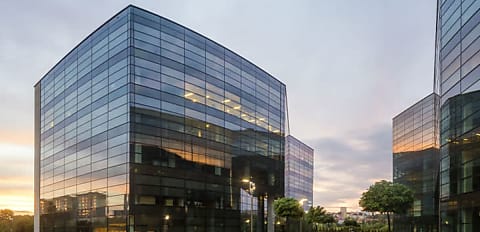Global property consulting firm JLL has found that commercial real estate investment in the APAC region contracted by 30 per cent year-on-year during the March quarter to $27 billion.
JLL’s latest data has revealed that Japan outperformed the rest of the region, notching $8.9 billion in investment activity for the first quarter. The figures are up 4.7 per cent year-on-year, supported by a surge of office offloading by Japanese corporates and acquisition activity by J-Real Estate Investment Trusts (REITs).
In contrast, Australia registered $3.7 billion in transactions, down 26 per cent year-on-year as office volumes responded to the ongoing impact of hybrid work.
Notably, JLL’s latest Future of Work research showed Australia’s corporate real estate leaders’ view of the workplace is evolving as the hybrid work model continues to rise in popularity, with 45 per cent of CRE executives viewing “collaborative working” as the primary purpose of office space.
Moving to other parts of the region, data showed China investment volumes reached $6.9 billion in the first quarter, representing a decline of 17 per cent year-on-year, with limited activity outside Shanghai.
Meanwhile, Hong Kong transactions moderated to $1.6 billion as JLL noted the majority of the deals executed during the period were primarily small and mid-sized private capital transactions.
In Singapore, investment volumes also declined sharply by 67 per cent annually to $1.9 billion, driven by limited activity in the office and retail sectors, compared to a high base in the previous year.
Stuart Crow, chief executive for JLL’s capital markets in APAC, has commented on the “challenging” nature of the market, highlighting investors’ concerns that the tightening of lending standards will create additional uncertainty in the commercial real estate sector.
Notably, all major sectors of APAC’s commercial market took a hit in the recent quarter.
Office market investments fell to $12.7 billion from $17.3 billion a year earlier, one of the sector’s softest quarters on record, as interest rate hikes and asset repricing affected trading.
Similarly, investment volumes in the logistics and industrial sectors fell by 24 per cent annually as the number of $100 million-plus transactions declined due to a new cycle of price discovery and funding challenges.
Investment activity remained muted in the retail sector, recording $5.3 billion worth of transactions in the first quarter of 2023 — below the five-year quarterly average of $7.5 billion. In the first quarter of the year, large-scale shopping mall trades also largely disappeared in the region.
Investment in the Asia-Pacific region’s hotel market totalled $2.4 billion for the quarter, down 30 per cent year-on-year, despite a strong rebound in hotel trading performance, as macroeconomic influences weighed on sentiment.
Despite investment down by a significant margin and market players bracing themselves for the stormy weather ahead, Mr Stuart said, “Asia Pacific remains more insulated and we’re confident that liquidity risk is well contained in the region and a resumption of activity is a matter of when, and not if.”
According to Pamela Ambler, head of investor intelligence for Asia Pacific at JLL, the region may be lagging behind in the current price adjustment cycle, but she does not expect prices to see a significant correction.
“We expect the level of repricing to peak in the second quarter of 2023 and then moderate in the latter half of this year, as borrowing costs are expected to come off with potential rate cuts going forward,” she concluded.
[Related: Challenger sells CRE real estate business]
